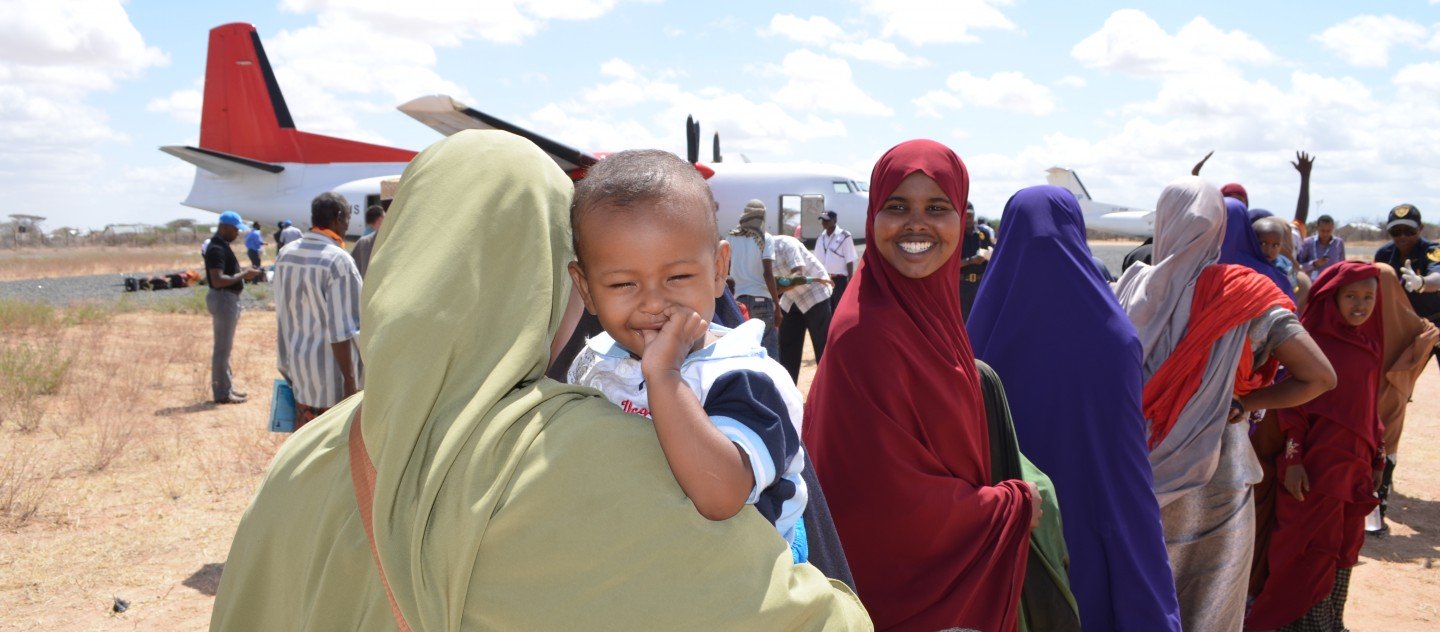The main areas of focus are the provision of basic needs and essential services (45%), support to host communities, livelihoods, integration and environmental projects (20%), protection including refugee status determination, registration, reception, child protection, security, sexual and gender based violence, legal aid, advocacy and monitoring (16%), operations and logistical support (14%) and support to the voluntary repatriation process (5%).
There is a growing emphasis on strengthening the capacities of refugees and increasing viable livelihood opportunities for refugees and nationals which would result in enhancing the self-reliance of the concerned population and ensure that a durable solution particularly for refugees is achieved. In this regard, UNHCR is working with development partners such as the national and county governments, the World Bank, Private Sector entities and UN agencies in the developing plans that seek to ensure the integration of host community and refugee economies in Kenya. In the Kalobeyei settlement in Kakuma, UNHCR is developing a five year plan in order to ensure that the Kalobeyei Integrated Socio Economic Development Programme is implemented.
UNHCR works with a variety of partners in order to ensure the smooth and timely delivery of assistance and protection to refugees in Kenya. The Ministry of Interior and Coordination of National Government is UNHCR’s primary government counterpart in asylum and refugee management. UNHCR also works closely with various ministries within the national and county governments in ensuring service delivery to the affected populations. Other main partners are the UN Country Team, international and national NGOs, and the Kenya Red Cross Society. The refugee operation has been included in the United Nations Development Assistance Framework (UNDAF) for Kenya and UNHCR Kenya is an active participant in the UN Country Team. In the refugee camps, World Food Programme (WFP) is the principal provider of food assistance.
To generate and maintain donor interest, obtain public support and increase reception of fresh funding (both from public and private sector) while securing traditional donors and identifying new ones, UNHCR Kenya is systematically coordinating information on funding inflows and implementation for stakeholders in the refugee programme. Joint planning and monitoring ensures that complementarity of funding is well coordinated through the Kenya Comprehensive Refugee Programme (KCRP) process.
UNHCR also organises and coordinates missions with donors as well as hold regular briefings in Nairobi. To ensure visibility of UNHCR mandate, regional and national priorities as well as overall needs, UNHCR Kenya regularly provides information to stakeholders including donors on its activities through a website, data portals and social media accounts.
In terms of coordination, UNHCR will continue to maintain and foster strategic partnerships to ensure that asylum-seekers and refugees in Kenya receive protection. Coordinated action will aim to deliver effective and sustainable solutions to improve their conditions, through engagement with key institutions in the national and county executives, legislatures and judiciary, as well as with the private sector and concerned communities.
UNHCR Kenya is grateful for the generous contributions of donors who have provided unrestricted and broadly earmarked funds, as well as to donors who have contributed directly to the operation in Kenya.

